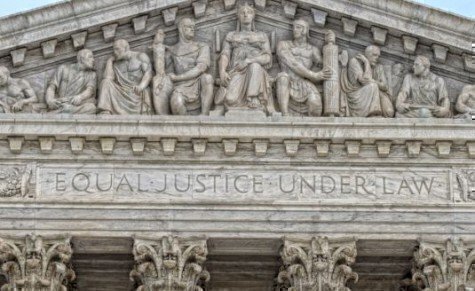Over the dissents of two Justices, the Supreme Court on Friday morning allowed Michigan voters to cast a straight-ticket ballot — a single vote that applies to every candidate from one party. In a brief order, the Justices turned down a request by state officials to block such balloting. The order is here.
 Justices Samuel A. Alito, Jr., and Clarence Thomas noted that they would have granted the request to block a federal judge’s order permitting straight-ticket voting despite a state ban enacted by the legislature last year.
Justices Samuel A. Alito, Jr., and Clarence Thomas noted that they would have granted the request to block a federal judge’s order permitting straight-ticket voting despite a state ban enacted by the legislature last year.After the judge’s order, a panel of the U.S. Court of Appeals for the Sixth Circuit ruled the challengers to the ban were likely to win when the case went on trial, on the view that the restriction probably violates the Equal Protection guarantee of the Fourteenth Amendment, because of its impact on black voters. Later, the en banc Sixth Circuit Court voted 9-to-6 against reviewing the case at this time.
Michigan has had straight-ticket voting since 1891, and the method is popular with minority and poor voters, who do not have time to wait in long lines to cast votes when the ballot is long.
It would have taken the votes of five of the eight Justices to reimpose the ban for this year’s election. Friday’s order did not provide an explanation of the view of any of the Justices for or against the state’s request.
Among voting rights disputes, which are multiplying in this election year, the Supreme Court is still considering a request to restore the so-called “Golden Week” of early voting that had existed in Ohio. An order is likely to come out on that controversy very soon.
Legendary journalist Lyle Denniston is Constitution Daily’s Supreme Court correspondent. Denniston has written for us as a contributor since June 2011. Denniston has covered the Supreme Court since 1958. His work also appears on lyldenlawnews.com.





